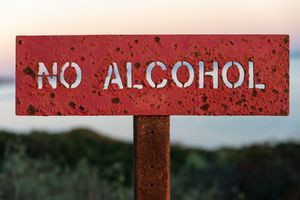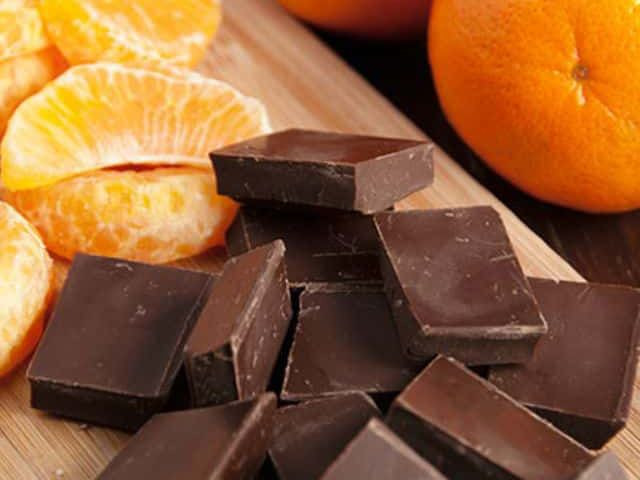Can You Be Drunk And Get A Tattoo? No, you absolutely should not be drunk to get a tattoo. Tattooat.com emphasizes the importance of understanding the risks involved and following strict guidelines to ensure a safe and successful tattoo experience. Alcohol consumption can lead to complications during and after the tattoo process. It’s best to be sober, prioritize your health, and ensure the artwork is flawless with informed decisions.
1. Understanding the Risks of Mixing Alcohol and Tattoos
Why should you avoid alcohol before and after getting inked? It’s not just about following rules; it’s about ensuring your health, the quality of your tattoo, and the safety of everyone involved.
1.1. Why Abstinence is Key
The combination of alcohol and getting a tattoo can be detrimental to your health. Tattooat.com believes abstaining from drinking alcohol for at least 24 hours before and 48 hours after getting a tattoo is crucial for protecting your body’s natural healing abilities. While celebrating a new tattoo with a drink might seem tempting, patience and self-control are key. Think of your tattoo as a medical procedure that requires rest and healing time.
1.2. The Surprising Truth About “Drunk Tattoos”
In the past, waking up with a tattoo you don’t remember getting was a common joke. However, it is not funny anymore, drinking after getting a tattoo is risky for several reasons:
- Compromised Healing: Alcohol interferes with your body’s natural healing process, potentially leading to complications and a prolonged recovery.
- Legal Issues: Tattoo artists risk legal liability if they tattoo someone under the influence, as consent may not be valid.
- Quality Concerns: Intoxication can impair judgment, leading to poor decisions about tattoo design and placement.
1.3. The Ripple Effect of Alcohol on Your Tattoo
Beyond the immediate risks, alcohol can have a lasting impact on your tattoo’s appearance and your overall health. Choosing sobriety is an investment in your well-being and the longevity of your body art.
 no alcohol sign
no alcohol sign
2. How Alcohol Affects Your Tattoo
What exactly happens when alcohol enters the picture before, during, or after your tattoo session? Let’s break down the specific ways alcohol can sabotage your tattoo and your health.
2.1. Blood Thinning and Excessive Bleeding
Alcohol thins your blood, disrupting the body’s natural clotting function. Clotting is essential for healing wounds, including tattoos, which the body perceives as an injury. How does this affect your tattoo?
- During the Tattoo: Increased bleeding can obscure the tattoo artist’s visibility, making it difficult to apply the ink accurately and potentially resulting in a poorly executed design.
- After the Tattoo: Thin blood prevents proper clotting and scabbing, hindering the body’s ability to heal the open wound. Prolonged bleeding beyond 36 hours is a sign that your body isn’t clotting properly, potentially requiring immediate medical attention.
2.2. Disrupted Healing Process
The tattooing process involves piercing the skin multiple times, creating an open wound that requires time to heal. Alcohol consumption impairs this process in several ways:
- Impaired Clotting and Scabbing: Alcohol makes it harder for the skin to clot and scab, delaying the natural healing process.
- Weakened Immune System: Alcohol suppresses the immune system, making you more susceptible to infections that your body would normally fight off.
According to research from Portland State University’s Art Department, in July 2025, the tattoo healing process is crucial for preventing infections and ensuring the tattoo’s longevity.
2.3. Loss of Self-Control
Many people consider alcohol as a relaxant, especially in stressful or painful situations. Tattooat.com strongly advises against relying on alcohol to cope with the pain of a new tattoo. Alcohol impairs brain function, leading to:
- Fainting: Loss of consciousness due to reduced blood flow to the brain.
- Over-Emotionalism: Uncontrolled crying or emotional outbursts.
- Nausea: Feeling sick to your stomach.
- Violence: Increased risk of aggressive behavior.
Drinking lowers inhibitions, impairs judgment, and increases the risk of aggressive behaviors, endangering your health and the safety of your tattoo artist.
 Tattooed Hand Pouring a Beer in a Wooden Cup
Tattooed Hand Pouring a Beer in a Wooden Cup
3. The Legal and Ethical Considerations of Tattooing Under the Influence
Beyond the physical risks, tattooing someone who is drunk raises serious legal and ethical concerns. Reputable tattoo shops understand these issues and take steps to protect themselves and their clients.
3.1. The Illegality of Consent
Tattoo shops require clients to sign a consent form and liability waiver before getting a tattoo. However, these forms are legally invalid if the client is intoxicated.
- Invalid Contract: A contract signed by an intoxicated person can be deemed invalid in court.
- Artist Liability: Tattoo artists can be held liable for damages caused by tattooing someone who is drunk.
3.2. Protecting the Shop and the Client
Tattoo shop owners have a responsibility to protect their businesses and their clients from the potential dangers and complications caused by drunken behavior. This includes refusing service to anyone who appears to be under the influence.
3.3. The Tattoo Artist’s Perspective
Experienced tattoo artists prioritize their client’s safety and well-being. They understand the risks associated with tattooing someone who is drunk and will not proceed with the procedure if they suspect intoxication.
4. The Risks of Drinking Before a Tattoo
What are the specific dangers of consuming alcohol in the 24 hours leading up to your tattoo appointment? Let’s delve deeper into the health risks and potential consequences.
4.1. Blood Thinning and Impaired Clotting
Alcohol’s effects on blood thinning can persist for up to 48 hours after consumption. Even if you feel sober, your blood may still be too diluted for the tattooing process.
- Increased Bleeding: Thin blood increases the risk of bleeding during and after the tattoo, making it difficult for the artist to work and hindering the healing process.
- Compromised Tattoo Quality: Excessive bleeding can dilute the ink, resulting in a tattoo with faded colors and reduced intensity.
4.2. Bad Tattoos and Infections
Drinking alcohol dilutes your blood, causing increased bleeding, blood mixes with the ink because the needle on the tattooing machine pierces the skin.
Remember that if your blood is too thin, it will not be able to clot properly, and the blood may begin to pool in the area of the tattoo!
In addition to this, the actual colors of the tattoo may be watered down too much if the blood is overly thin. This means that the tattoo will lose its intensity.
4.3. Emotional and Behavioral Instability
Alcohol can lead to emotional and behavioral instability, making it difficult for you to cooperate with the tattoo artist.
- Difficulty Communicating: Intoxication impairs your ability to clearly communicate your desired tattoo design and placement.
- Restlessness: Alcohol can make it difficult to sit or lie still, increasing the risk of mistakes during the tattooing process.
- Distraction: Talking excessively or otherwise distracting the tattoo artist can compromise the quality of the tattoo.
4.4. Session Cancellation
If a tattoo artist suspects you are drunk, they may cancel your appointment, resulting in the loss of your deposit and potential ban from the shop.
- Inability to Consent: Drunk people cannot legally give consent to participate in a tattoo session.
- Legal Risk: Tattooing someone who is drunk puts the artist at legal risk.
4.5. Negative Impact on the Tattoo Shop
Your behavior due to drinking causes other customers to feel uncomfortable, or your tattoo ends up less than ideal because of thin blood, this could harm the tattoo artist and the studio. Tattoo artists choose stable canvases to showcase their talents, avoiding drunks who might make their business or talent look bad.
 Woman Feeling Sick Sitting at Bar with Tattoo on her forearm
Woman Feeling Sick Sitting at Bar with Tattoo on her forearm
5. Sobriety and Success: What to Do Instead of Drinking
Now that you understand the risks of mixing alcohol and tattoos, let’s explore healthier ways to prepare for your tattoo and ensure a successful outcome.
5.1. The Importance of Hydration
Drinking plenty of water is essential for healthy skin and proper healing. Start increasing your water intake a few days before your tattoo appointment.
- Hydrated Skin: Well-hydrated skin is more elastic and receptive to the tattooing process.
- Improved Healing: Water helps flush out toxins and promotes efficient healing.
5.2. Nourishing Your Body
Eating a balanced diet rich in vitamins and minerals can boost your immune system and support the healing process. Focus on consuming the following foods:
- Oranges: Rich in Vitamin C, which is vital for collagen production and healthy skin.
- Dark Chocolate: Provides antioxidants that speed up skin cell renewal and protect against sun damage.
- Broccoli: Contains antioxidants and Vitamin K, which protects against blood thinning.
- Blueberries: Packed with antioxidants that boost the immune system and promote healing.
- Pineapple: Contains Vitamin C and bromelain, which promote collagen production and reduce inflammation.
- Garlic: Stimulates the immune system, aids healing, and prevents infection.
- Tomatoes: Rich in Vitamins C and A, which preserve the skin and protect against sun damage.
- Healthy Carbs: Stabilize blood sugar levels and provide sustained energy.
- Dark Leafy Greens: Rich in antioxidants, minerals, and Vitamin K.
According to Inked Magazine, a healthy diet is crucial for optimal tattoo healing.
5.3. Mental Preparation
Getting a tattoo can be a nerve-wracking experience, especially if it’s your first time. Here are some ways to mentally prepare for your appointment:
- Relaxation Techniques: Practice deep breathing, meditation, or other relaxation techniques to calm your nerves.
- Distraction: Bring a book, listen to music, or chat with the tattoo artist to take your mind off the pain.
- Positive Mindset: Focus on the excitement of getting a new tattoo and the joy of expressing yourself through body art.
5.4. Communicate with Your Artist
Open communication with your tattoo artist is crucial for a successful tattoo experience.
- Share Concerns: Let your artist know if you have any anxieties or concerns about the process.
- Ask Questions: Don’t hesitate to ask questions about the design, placement, or aftercare instructions.
- Trust Their Expertise: Remember that your artist is a professional who wants to create a beautiful and lasting piece of art.
 Oranges and Dark Chocolates
Oranges and Dark Chocolates
6. Navigating the Tattoo Aftercare Process
Once your tattoo is complete, proper aftercare is essential for ensuring it heals properly and looks its best. Avoid alcohol during this period and follow your artist’s instructions carefully.
6.1. The Importance of Aftercare
Proper tattoo aftercare is crucial for preventing infections, minimizing scarring, and preserving the vibrancy of your tattoo.
- Cleanliness: Keep the tattoo clean by washing it gently with mild soap and water.
- Moisturization: Apply a thin layer of fragrance-free moisturizer to keep the skin hydrated.
- Sun Protection: Protect the tattoo from sun exposure by wearing loose-fitting clothing or applying sunscreen.
- Avoid Irritants: Avoid harsh chemicals, scented lotions, and tight clothing that can irritate the skin.
6.2. The Role of Diet and Hydration
Continuing to eat a healthy diet and drink plenty of water will support your body’s healing process and contribute to the overall health of your skin.
- Nutrient-Rich Foods: Focus on consuming foods rich in vitamins, minerals, and antioxidants.
- Hydration: Drink plenty of water to keep your skin hydrated and promote efficient healing.
6.3. Recognizing Signs of Infection
It’s important to be aware of the signs of infection and seek medical attention if you suspect a problem.
- Excessive Redness: Increased redness or swelling around the tattoo.
- Pain: Throbbing pain that worsens over time.
- Pus: Yellow or green discharge from the tattoo.
- Fever: Elevated body temperature.
If you experience any of these symptoms, consult a doctor or dermatologist immediately.
7. Tattooat.com: Your Partner in Tattoo Success
At Tattooat.com, we’re dedicated to providing you with the information and resources you need for a safe and successful tattoo experience.
7.1. Explore Designs and Inspiration
Browse our extensive gallery of tattoo designs to find inspiration for your next piece of body art. Discover a wide range of styles, themes, and placements to suit your individual taste and preferences.
7.2. Find Talented Artists and Reputable Studios
Our directory of tattoo artists and studios features talented professionals across the United States. Find an artist whose style aligns with your vision and a studio that prioritizes safety and hygiene. Our address is 1825 SW Broadway, Portland, OR 97201, United States. Phone: +1 (503) 725-3000.
7.3. Learn About Tattoo Culture and History
Delve into the rich history and cultural significance of tattooing. Explore different styles, techniques, and traditions from around the world.
7.4. Access Expert Advice and Guidance
Our comprehensive articles and guides cover everything you need to know about tattoos, from choosing a design to caring for your new ink. Get expert advice on pain management, aftercare, and tattoo removal.
 Tattoos and Drinking
Tattoos and Drinking
8. FAQs About Alcohol and Tattoos
Here are some frequently asked questions about alcohol and tattoos:
8.1. Can I drink alcohol the night before my tattoo appointment?
No, it’s best to abstain from alcohol for at least 24 hours before getting a tattoo to minimize the risk of bleeding and other complications.
8.2. How long after getting a tattoo can I drink alcohol?
Wait at least 48 hours after getting your new tattoo. Alcohol reduces the antibodies available in your body inhibiting the natural healing process.
8.3. What if I accidentally drank alcohol before my tattoo appointment?
Contact your tattoo artist as soon as possible and let them know. They may choose to reschedule your appointment or proceed with caution.
8.4. Can I use numbing cream instead of drinking alcohol to manage pain?
Yes, numbing creams can be a safe and effective way to manage pain during a tattoo session. Consult with your tattoo artist to determine if numbing cream is right for you.
8.5. What should I do if my tattoo is still bleeding after 24 hours?
Contact your tattoo artist or a medical professional for advice. Prolonged bleeding can be a sign of a clotting problem or other complication.
8.6. Can I take painkillers like ibuprofen before getting a tattoo?
Ibuprofen can thin the blood, so it’s best to avoid it before getting a tattoo. Consult with your doctor or tattoo artist for alternative pain management options.
8.7. What are the best drinks to consume before and after getting a tattoo?
Water, herbal teas, and fruit juices are all good choices. Avoid sugary drinks, which can dehydrate you and interfere with healing.
8.8. Can I smoke cigarettes before or after getting a tattoo?
Smoking can impair blood flow and hinder the healing process. It’s best to avoid smoking before and after getting a tattoo.
8.9. How can I find a reputable tattoo artist who prioritizes safety?
Look for an artist who is licensed, experienced, and willing to answer your questions. Check online reviews and ask for recommendations from friends or other tattoo enthusiasts.
8.10. What should I expect during my first tattoo appointment?
Your tattoo artist will clean and shave the area to be tattooed, apply a stencil of the design, and then begin tattooing. Be prepared to sit still for an extended period and communicate with your artist if you need to take a break.
9. Make the Right Choice: Prioritize Your Tattoo and Your Health
Can you be drunk and get a tattoo? The answer is a resounding no. Abstaining from alcohol before and after getting a tattoo is an investment in your health, the quality of your body art, and the safety of everyone involved. By following these guidelines and seeking expert advice, you can ensure a positive and rewarding tattoo experience.
Ready to embark on your tattoo journey? Visit tattooat.com today to discover inspiration, find talented artists, and learn everything you need to know about tattoos. Let us help you create a stunning piece of body art that you’ll cherish for a lifetime.